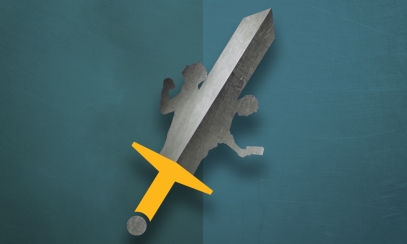Families and vocations
The times and circumstances have changed since I first considered priesthood as a vocation when I was in the fourth grade. My family had a lot to do with it, especially my two grandmothers. First they urged me to volunteer to be an altar boy. Grandma Povish had seven grandsons; six of us became altar boys, three of us went to the seminary, and two of us are ordained. The Dominican Sisters who taught me worked on me too, and our pastor had a monthly boys’ conference in which he discussed vocations regularly.
Nowadays, families are smaller, so sons and grandsons are fewer. Grandparents often don’t live in the same town or even in the same state, so they don’t have the influence our grandparents had. There aren’t many teaching sisters any more, and Catholic school enrollments are down.
Even so, occasionally in a parish or at the mall or in the supermarket I will meet parents who recognize me and introduce me to a young son with a remark like, “Jimmy thinks he would like to be a priest.” After the picture taking, at the coffee-and-fruit-drink reception for those whom I had confirmed, parents would sometimes make a similar remark about their son; I never failed to give my address to the confirmand and ask him to write to me about it. This year two teenagers attending Bethany House weekends in DeWitt where I live confided to me that they are thinking about priesthood. I hope their parents, grandparents, and godparents will encourage all boys and youths like the above and pray for their guidance.
Another change in recent times is that more and more vocations to the priesthood seem to be coming, not in the fourth grade, nor with Confirmation, nor in high school. A lot of recruiting is going on at the college level at student parishes, and even after college or university. Second-career priests are common these days. You may have noticed in recent pictures of ordination classes that some of the new priests are older, with less hair or more gray. What you may not realize is that some of them are converts to Catholicism and some are widowers with children and grandchildren.
The resumés in their personnel files include previous careers such as craftsmen and lawyers, accountants and businessmen, schoolteachers and lab technicians, and medical doctors. The one thing they all had in common was a desire to do something more and something different from what they were doing. They served God and the public as laymen, but somehow that just didn’t seem to be enough. Some say that a desire from boyhood resurfaced when their first career got frustrating, or that a priest or relative or friend kept saying, “You know, you really ought to be a priest.”
These second-career priests bring new skills into their ministry and soon enough match those of their first-career colleagues. So if there is a man who is single in your family or parish who you think has the gifts and qualities to be a priest, put a bug in his ear about it. It doesn’t matter if he’s 25 or 35 or 45. Pray for him. Encourage him. Maybe that’s all he needs.
And if you happen to be a man yourself, wondering if you could be a priest, look into it without any more delay.



